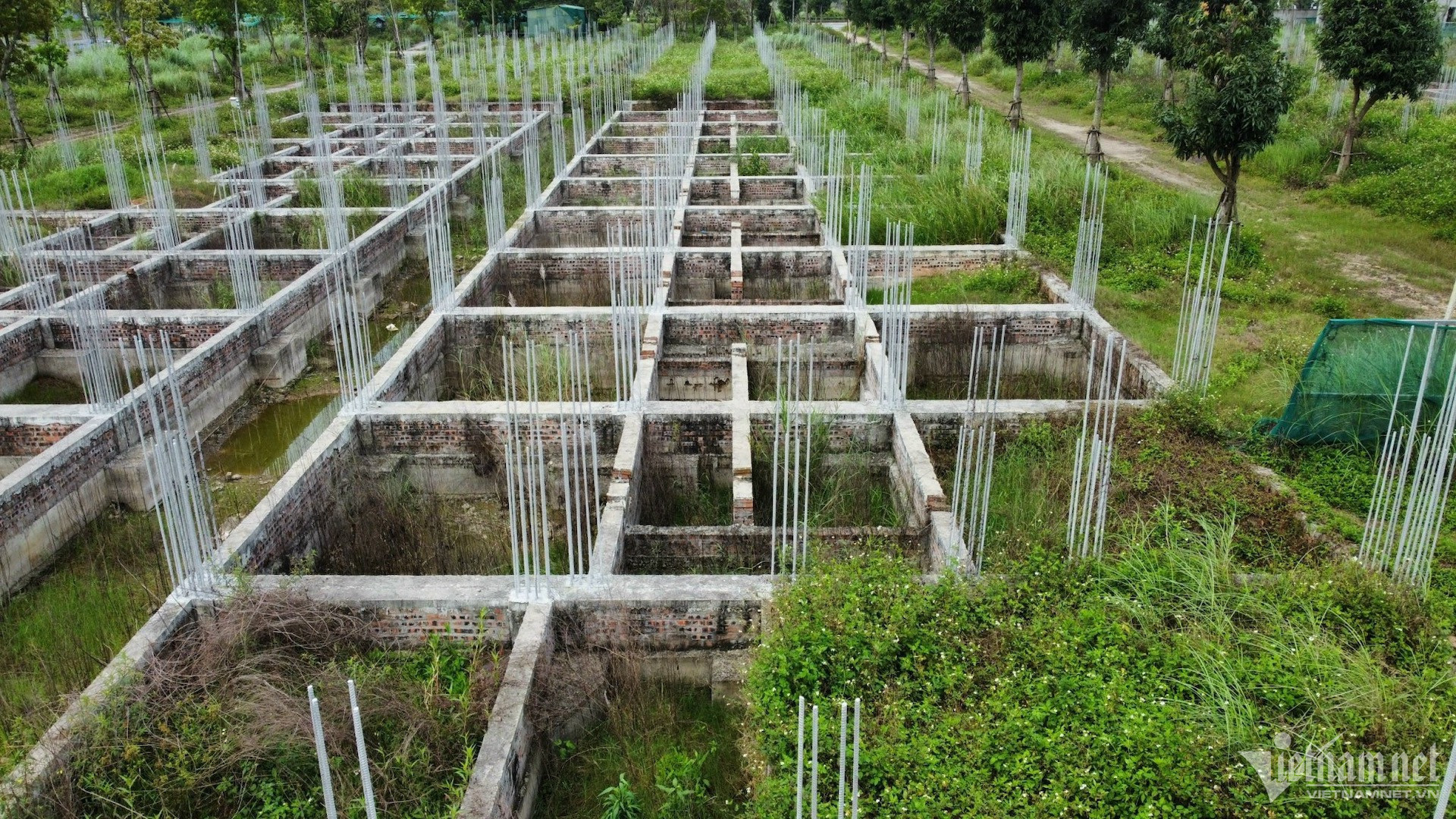"When the Property Tax Law is enacted, idle land will no longer exist because individuals and businesses will only buy land to use. If they buy land to wait for prices to rise, they’ll have to pay taxes," an expert suggested.
Regarding real estate tax policy, Deputy Prime Minister Tran Hong Ha recently called for a review of taxation on idle land and delayed projects.
However, he emphasized that this must be done thoroughly to avoid affecting those who legally use their properties. Tax policies should not overlap, and must clearly distinguish between speculators and genuine users, or between legal businesses and those hoarding land and wasting resources.
Taxing speculation and land hoarding

Speaking to VietNamNet, economist Dinh The Hien stated that studying tax policies on idle land and delayed projects, or enforcing rules that only allow selling constructed houses (not undeveloped land), aims to make more effective use of real estate and curb speculation.
However, he noted that such measures are reactive and fragmented, rather than being based on a comprehensive legal foundation. In contrast, laws such as the Land Law, Real Estate Law, and the proposed Property Tax Law provide a more holistic approach to resolving these issues.
Therefore, Hien emphasized the need to build and finalize a Property Tax Law (primarily focused on real estate), which would address various concerns in detail. It would, for example, distinguish between abandoned land due to investors' inaction and land delayed due to policy or administrative bottlenecks.
"Property tax is one of the most important forms of taxation for a nation. Most countries have already adopted it. The principle of 'own more, pay more; own less, pay less' is fair. The lack of a Property Tax Law has led to rampant speculation.
When such a law is in place, there will be no more idle land, as people will only buy land they plan to use. Those who buy just to wait for price increases will have to pay taxes to the state," Hien explained.
Nguyen Van Dinh, Vice Chairman of the Vietnam Real Estate Association, noted that for property developers, there are already legal provisions to penalize projects that are not implemented.
According to the Land Law, if land is not used for 12 consecutive months after allocation, or if progress is 24 months behind the approved schedule, the state will revoke the land and any structures built on it.
Additionally, developers who do not utilize land on schedule may be granted an extension of up to 24 months, but must pay a fee equivalent to the land use or lease value for the extended period.
If the land remains unused after the extension, the state will reclaim it without compensating for the land, structures, or remaining investment.
However, for individual investors, the current legal system lacks a clear mechanism to identify and curb speculative or hoarding activities.
Thus, according to Dinh, implementing a real estate tax policy is urgent to ensure the market develops safely, healthily, and sustainably.
He stressed that an effective and transparent property tax, focused on speculative hoarding rather than on genuine homebuyers or business users, would not only increase state revenue but also help regulate the real estate market.
Penalties instead of taxes?
Real estate expert Tran Khanh Quang agreed that taxing idle land and delayed projects is necessary but cautioned that it must be considered carefully.
Currently, real estate is already burdened by multiple taxes and fees. Therefore, any additional tax must clearly differentiate whether delays are due to subjective or objective factors.
For approved projects with no valid reason for delay, authorities could allow one or two extensions, but impose a tax by the third delay. This approach would prevent companies from "reserving" land for profit without development.
However, Quang also noted that in the near future, real estate firms will have to compensate landowners at market rates, pay land use fees based on market prices, and ensure their own and mobilized capital. All these factors significantly increase development costs.
Therefore, if taxes on idle land or delayed projects are to be introduced, they must be evaluated thoroughly.
“Penalties could be a better approach to encourage project progress and increase supply in the market. This may prove more effective than a permanent tax,” Quang suggested.
Nguyen Le